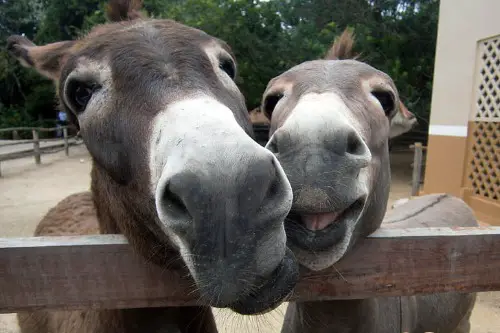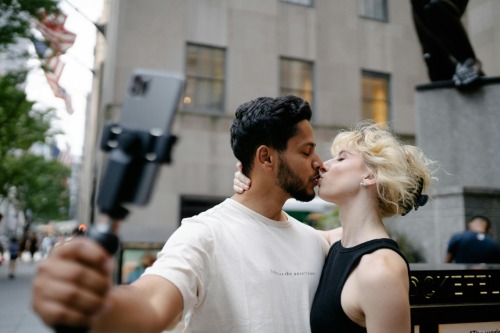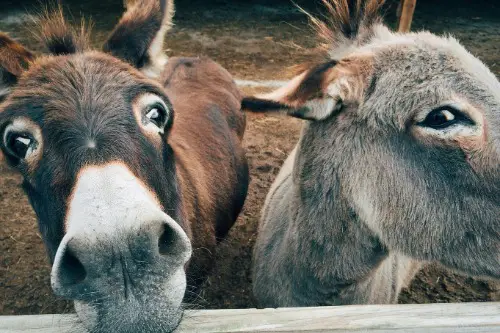1. California: Frogs Can’t Die in Frog-Jumping Contests

In California, an unusual law mandates that frogs participating in frog-jumping contests must not die as a result of the competition. This legislation was enacted to protect the amphibians used in events like the Calaveras County Frog Jumping Jubilee, an annual tradition inspired by Mark Twain’s famous short story. The rule specifies that if a frog passes away during the event, it must be treated respectfully—eaten or mistreating the deceased animal is strictly prohibited. While this law might seem peculiar, it underscores the state’s commitment to animal welfare, even for seemingly trivial events.
This law highlights the intersection of cultural traditions and ethical considerations, showcasing how even the most lighthearted customs can prompt serious legal protections. The rule may seem humorous to outsiders, but it serves an important purpose in promoting responsible treatment of animals. Over time, the law has become a quirky but meaningful part of California’s legal landscape, reminding participants to treat their jumping frogs with care. It also underscores how deeply a community’s unique traditions can influence legislation, reflecting values that might seem odd yet meaningful to those who live by them.
2. Arkansas: No Honking After 9 P.M. Near Sandwich Shops

In Little Rock, Arkansas, honking your car horn near sandwich shops after 9 p.m. is against the law. While it may initially seem like an arbitrary restriction, this ordinance likely emerged as a solution to noise complaints in areas where sandwich shops doubled as popular late-night hangouts. Overzealous drivers honking to signal friends or express impatience may have disrupted the peace, leading city officials to enact this specific law. The regulation aimed to balance the needs of diners and the surrounding community, ensuring nighttime tranquility for residents.
Though honking is typically reserved for emergencies, it’s not hard to imagine how car horns could become a nuisance in high-traffic areas. This law also serves as a humorous reminder of how mundane problems can result in hyper-specific legislation. For sandwich shop patrons today, the rule is a quirky relic of local history, rarely enforced but still officially on the books. It stands as a testament to how laws often reflect the unique dynamics of a community, addressing issues that might baffle outsiders but make perfect sense in context.
3. Alabama: Dominoes Are Banned on Sundays

In Alabama, playing dominoes on Sundays is prohibited, a rule that dates back to the era of “blue laws” designed to enforce Sabbath observance. During the 19th and early 20th centuries, recreational activities that were considered noisy or disruptive were often banned on Sundays. Dominoes, despite their seemingly harmless nature, may have been linked to gambling or rowdy behavior, which lawmakers sought to curtail. The rule was part of a broader effort to preserve Sundays for rest and religious reflection.
Today, the domino ban is largely seen as an anachronism, a quirky piece of legal history rather than an actively enforced rule. It offers a fascinating glimpse into how cultural and religious values shaped legislation in the past. While modern Alabama no longer enforces strict Sabbath observance, the law remains on the books as a reminder of a bygone era. Its enduring presence is a humorous nod to history, illustrating how societal priorities evolve over time while leaving behind traces of their former importance.
4. Arizona: Donkeys Can’t Sleep in the Bathtub

Arizona’s law prohibiting donkeys from sleeping in bathtubs might sound like a joke, but it stems from a real event in the 1920s. A rancher allowed his donkey to sleep in an outdoor bathtub, and during a flood, the tub and its occupant were swept away by the rushing waters. The donkey’s rescue involved significant effort and resources, prompting lawmakers to prevent such incidents from happening again. Thus, the quirky law was born, ensuring no donkey would find itself in a similarly precarious situation.
This legislation may appear overly specific, but it underscores how laws often arise in response to unusual but genuine problems. While the likelihood of another bathtub-dwelling donkey being swept away is slim, the law serves as a humorous reminder of Arizona’s unique history. It’s a testament to how even the most peculiar scenarios can shape public policy, leaving behind regulations that seem odd but carry a surprising logic. For Arizona residents, the law is both a source of amusement and a glimpse into the state’s past.
5. Colorado: Catapulting Is Off-Limits

In Colorado, the use of catapults is expressly forbidden, a law that harkens back to the days when such devices weren’t just historical relics. While it’s unlikely that Coloradans were waging medieval-style sieges, the law may have been enacted to address safety concerns or prevent public disturbances caused by projectile-launching contraptions. The rule covers all catapult-like devices, ensuring that creative individuals don’t put the public at risk with ill-conceived stunts.
This prohibition is a fascinating example of how laws often target niche activities that could pose dangers under specific circumstances. Though the average person isn’t likely to encounter a catapult, the rule remains on the books as a quirky reminder of past concerns. It also reflects a broader principle in lawmaking: the need to address potential hazards, no matter how improbable they may seem. Colorado’s ban on catapults is both an oddity and a practical measure, blending humor with a commitment to public safety.
6. Connecticut: Used Mattresses Must Be Labeled

Connecticut’s law requiring the clear labeling of used mattresses might seem excessive, but it serves an important purpose. The regulation was introduced to protect consumers from unknowingly purchasing unsanitary or defective bedding. In the past, unscrupulous sellers might have attempted to pass off used mattresses as new, exposing buyers to health risks. By mandating transparency, the law ensures that consumers can make informed decisions and avoid potential hazards.
This rule highlights how even mundane products can be the subject of significant legal oversight. While today’s buyers may have access to more robust consumer protections, the mattress-labeling law remains a testament to the state’s commitment to public health. It’s a reminder that legislation often addresses specific issues that might seem minor but have broader implications for safety and fairness. For Connecticut residents, the law is a quirky yet meaningful safeguard against deceptive practices in the marketplace.
7. Hawaii: No Coins in Your Ears

Hawaii’s ban on placing coins in your ears may sound bizarre, but it has a practical origin. The rule was introduced to prevent street performers from using deceptive coin tricks to scam tourists. By outlawing this specific behavior, Hawaiian lawmakers aimed to protect visitors from being swindled while maintaining the island’s reputation as a safe and welcoming destination. The regulation targeted sleight-of-hand techniques that could lead to fraudulent transactions.
Though the law might seem overly specific today, it reflects a broader effort to ensure fairness and integrity in public spaces. Hawaii’s approach to addressing even niche problems demonstrates how local governments can tailor legislation to address unique challenges. For modern visitors, the rule is more of a curiosity than a concern, serving as a reminder of the island’s colorful history. It’s a quirky but effective example of how laws can protect both locals and tourists in unexpected ways.
8. Idaho: Sweeping Dirt into the Street Is Illegal

Idaho’s prohibition against sweeping dirt into the street might seem trivial, but it reflects a broader concern for public cleanliness. This law was likely enacted to prevent residents from creating unnecessary messes in shared spaces, ensuring that streets remained tidy and safe for all. By requiring people to dispose of their dirt properly, the rule fosters a sense of community responsibility and respect for public areas.
This regulation is a reminder of how small actions can have significant impacts on the overall quality of life in a community. While it might seem overly strict, the law addresses a practical issue that could otherwise lead to disputes or sanitation problems. For Idaho residents, the rule is both a humorous oddity and a practical measure that underscores the importance of keeping shared spaces clean. It’s a charmingly specific example of how laws can reflect everyday challenges and values.
9. Indiana: No Noodling for Fish

In Indiana, catching fish using only your hands, a technique known as noodling, is illegal. This law was implemented to protect both fish populations and the people attempting this daring fishing method. Noodling often involves grabbing fish from their nesting areas, which can disrupt ecosystems and endanger breeding cycles. Additionally, the practice can be hazardous for fishers, who risk injury from snapping jaws or hidden underwater hazards.
This regulation highlights the balance between preserving natural resources and ensuring public safety. While noodling may be a time-honored tradition in some communities, Indiana’s lawmakers prioritized sustainability and individual well-being. The ban serves as a reminder of how regulations often address niche activities that can have outsized impacts on the environment and public health. It’s a quirky yet meaningful example of how laws can protect both people and nature.
10. Iowa: No Kissing with a Mustache in Public

In Ottumwa, Iowa, a law prohibits men with mustaches from kissing women in public. This peculiar rule may have been introduced to address concerns about public decency or hygiene during a bygone era. At the time, mustaches were associated with certain stereotypes, and lawmakers may have sought to regulate behavior that was considered improper or unsanitary.
Today, the rule is a humorous relic of history, offering a glimpse into how societal norms once influenced legislation. While it’s unlikely to be enforced in modern times, the law serves as a quirky reminder of how cultural priorities can shape legal frameworks. For residents of Ottumwa, it’s a source of amusement and a testament to the changing standards of public behavior over time.
11. Kansas: No Cherry Pie with Ice Cream on Sundays

Kansas once banned serving cherry pie with ice cream on Sundays, a restriction rooted in efforts to enforce Sabbath observance. The law was likely intended to discourage indulgence and maintain the solemnity of the day, reflecting a time when Sunday activities were heavily regulated. Desserts like cherry pie a la mode, seen as symbols of luxury, may have been viewed as inappropriate for the Sabbath.
While the rule is no longer enforced, it remains a charmingly odd piece of Kansas’s legal history. It offers a humorous glimpse into how religious and cultural values once shaped even the most mundane aspects of daily life. For dessert lovers, the idea of such a ban is almost unthinkable today, but it serves as a reminder of how dramatically societal norms can evolve. Kansas’s cherry pie law is a sweetly strange chapter in its legislative history.
12. Georgia: Donkeys Must Stay Out of Bathtubs

Georgia’s law prohibiting donkeys from sleeping in bathtubs is as odd as it is specific. Similar to the Arizona law, this regulation may have been introduced after incidents where donkeys caused disruptions or created public safety concerns. A donkey in a bathtub might seem harmless, but such situations can quickly become complicated, particularly during emergencies like floods or fires.
This quirky law reflects the unexpected ways in which real-life events can shape public policy. While modern residents are unlikely to encounter bathtub-dwelling donkeys, the rule remains a humorous reminder of Georgia’s legal history. It’s a perfect example of how laws can blend practicality with absurdity, addressing niche problems while leaving behind stories that spark curiosity and laughter. For Georgians, it’s a law that adds a touch of whimsy to their state’s legal code.


